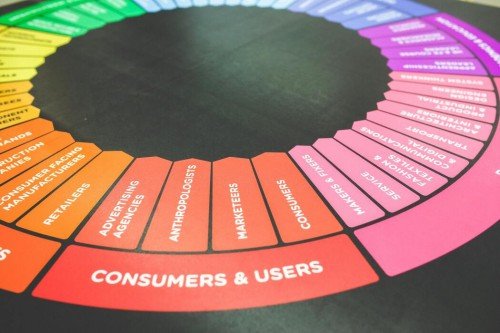
Why do some brands seem to pull customers in effortlessly while others struggle to be noticed? The answer lies not only in strategy, but also in psychology. Inbound marketing works because it taps into how people naturally think, behave, and make decisions. It’s less about pushing messages onto an audience and more about creating conditions where the audience chooses you.
To understand why inbound marketing is so effective, we need to explore the psychology behind attraction and how businesses can apply it to win both hearts and sales.
Give Before You Ask
Humans are wired to return favors. When someone gives us something valuable, we feel inclined to give back. In inbound marketing, this principle appears in:
-
Free resources: ebooks, templates, or webinars that solve real problems.
-
Helpful content: blog posts, how-to videos, or interactive guides that answer burning questions.
-
Exclusive access: free trials or sneak previews that create goodwill.
By leading with value, brands position themselves as generous partners, not pushy sellers. This generosity fosters trust and makes prospects more receptive when it’s time to buy.
Trust the Expert
People tend to trust those who demonstrate expertise. In inbound marketing, authority is established by:
-
Publishing insightful articles or whitepapers.
-
Speaking at industry events or hosting webinars.
-
Featuring credible data, research, and case studies.
The more consistently you showcase knowledge, the more your audience perceives you as a reliable guide. This trust accelerates decision-making and reduces perceived risk.
Following the Crowd
When we see others endorsing something, we’re more likely to believe in its value. Social proof is one of inbound marketing’s strongest levers.
-
Testimonials: Real customer stories carry more weight than brand claims.
-
Case studies: Data-driven results show clear impact.
-
User-generated content: Photos, reviews, or shout-outs on social media create authenticity.
Every positive signal from your community reassures new prospects: “If it worked for them, it can work for me.”
Commitment and Consistency
Psychology research shows that once people commit to something, even a small step, they are more likely to remain consistent with that behavior. Inbound strategies leverage this by:
-
Micro-conversions: Signing up for a newsletter or downloading a free guide.
-
Nurture journeys: Email drip campaigns that deepen engagement step by step.
-
Progress markers: Challenges, quizzes, or learning series that make users want to “finish what they started.”
Each interaction builds momentum, leading naturally toward a purchase decision.
Emotional Connection is More Than Logic
While logic informs decisions, emotions drive them. Inbound marketing works best when it resonates with feelings:
-
Storytelling: Narratives of customer transformation are far more compelling than product specs.
-
Brand personality: A voice that feels approachable, witty, or empathetic makes people relate.
-
Visual design: Colors, imagery, and style influence perception at a subconscious level.
The strongest brands don’t just solve problems, they make customers feel something.
Reducing Friction: The Path of Least Resistance
Behavioral psychology tells us people follow the easiest path. In inbound marketing, this means reducing friction at every stage:
-
Simple navigation on websites.
-
Clear CTAs (call-to-actions) that guide users seamlessly.
-
Fast-loading pages that don’t test patience.
When you remove obstacles, you create a smooth journey where choosing your brand feels effortless.
Scarcity and Urgency
Scarcity triggers action. When resources feel limited, people move faster. Inbound campaigns use this ethically to encourage conversions:
-
Limited-time offers for downloads or discounts.
-
Exclusive access to webinars with capped seats.
-
Highlighting product availability (“Only 3 spots left”).
When paired with authentic value, scarcity doesn’t pressure, it motivates.
How Psychology Powers SEO and Visibility
Attraction isn’t only about psychology, it also shapes discoverability. Search engines reward brands that align with human behavior:
-
Engaging, valuable content keeps people on your site longer.
-
Shares, backlinks, and mentions act as social proof in the digital space.
-
Positive user experiences (mobile-friendly, fast, accessible) send trust signals to algorithms.
That’s where strategies like off-page seo come in. By building authority through backlinks, partnerships, and brand mentions, businesses extend the psychological principle of social proof into the online realm. Prospects trust what others trust, and search engines do too.
Similarly, psychology-driven content paired with off-page seo creates a double advantage: humans feel pulled in emotionally, and algorithms elevate your visibility technically.
The Human Core of Inbound
What makes inbound marketing timeless is its alignment with human nature. People want to feel valued, understood, and empowered to choose. Outbound marketing interrupts; inbound invites. Outbound pushes; inbound attracts.
When brands lean into psychology, reciprocity, authority, social proof, emotion, and more, they tap into something universal. The result isn’t just higher conversion rates. It’s relationships that last beyond a single transaction.
Why Inbound Wins Hearts
Inbound marketing doesn’t succeed because of flashy tactics. It succeeds because it respects human behavior. By aligning with how people think and feel, it creates attraction instead of resistance.
For businesses, the lesson is clear: stop shouting and start listening. Stop pushing and start giving. When you do, you won’t just win sales, you’ll win hearts. And that’s the kind of marketing that endures.






